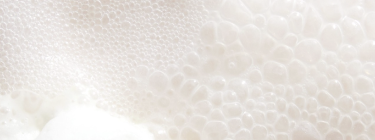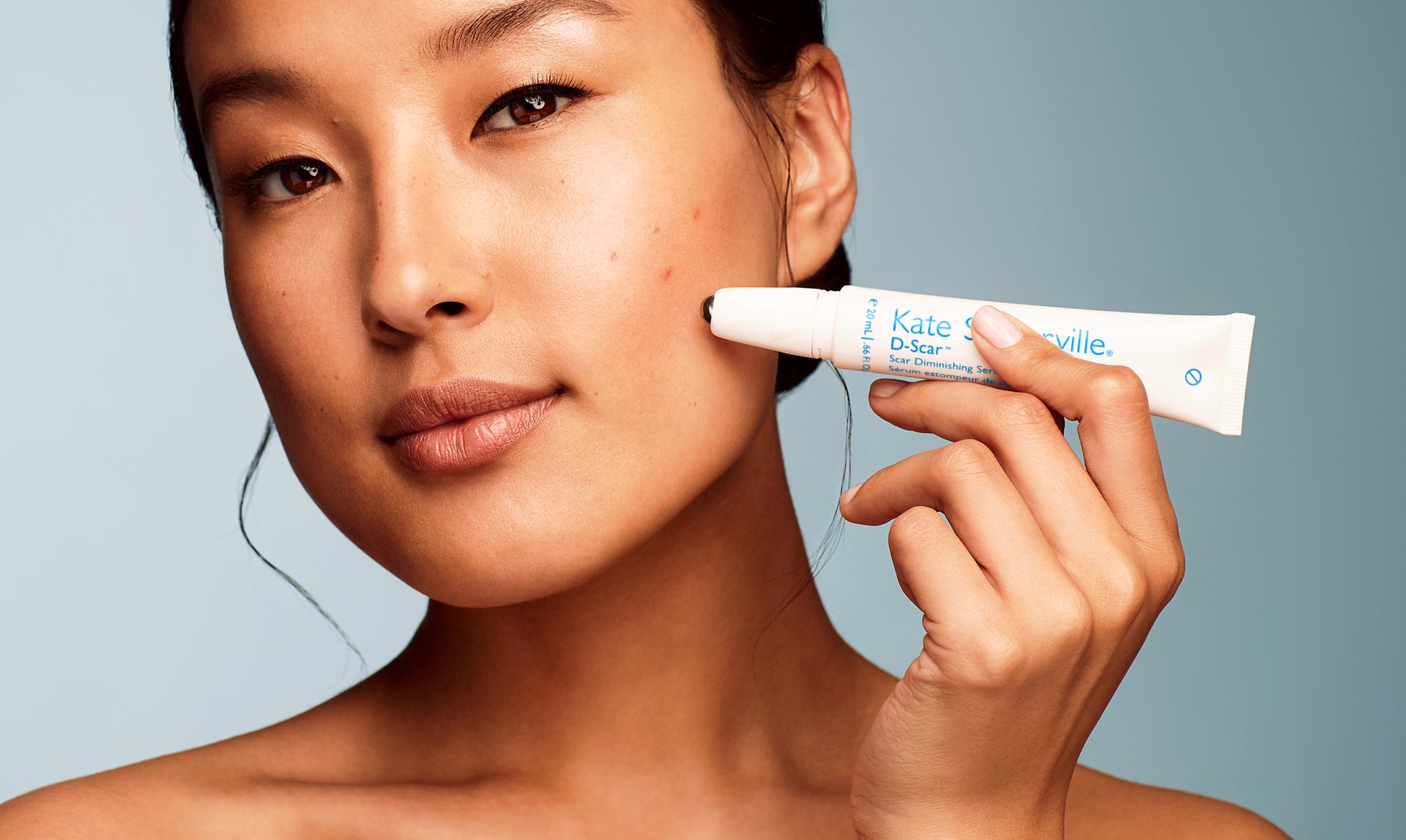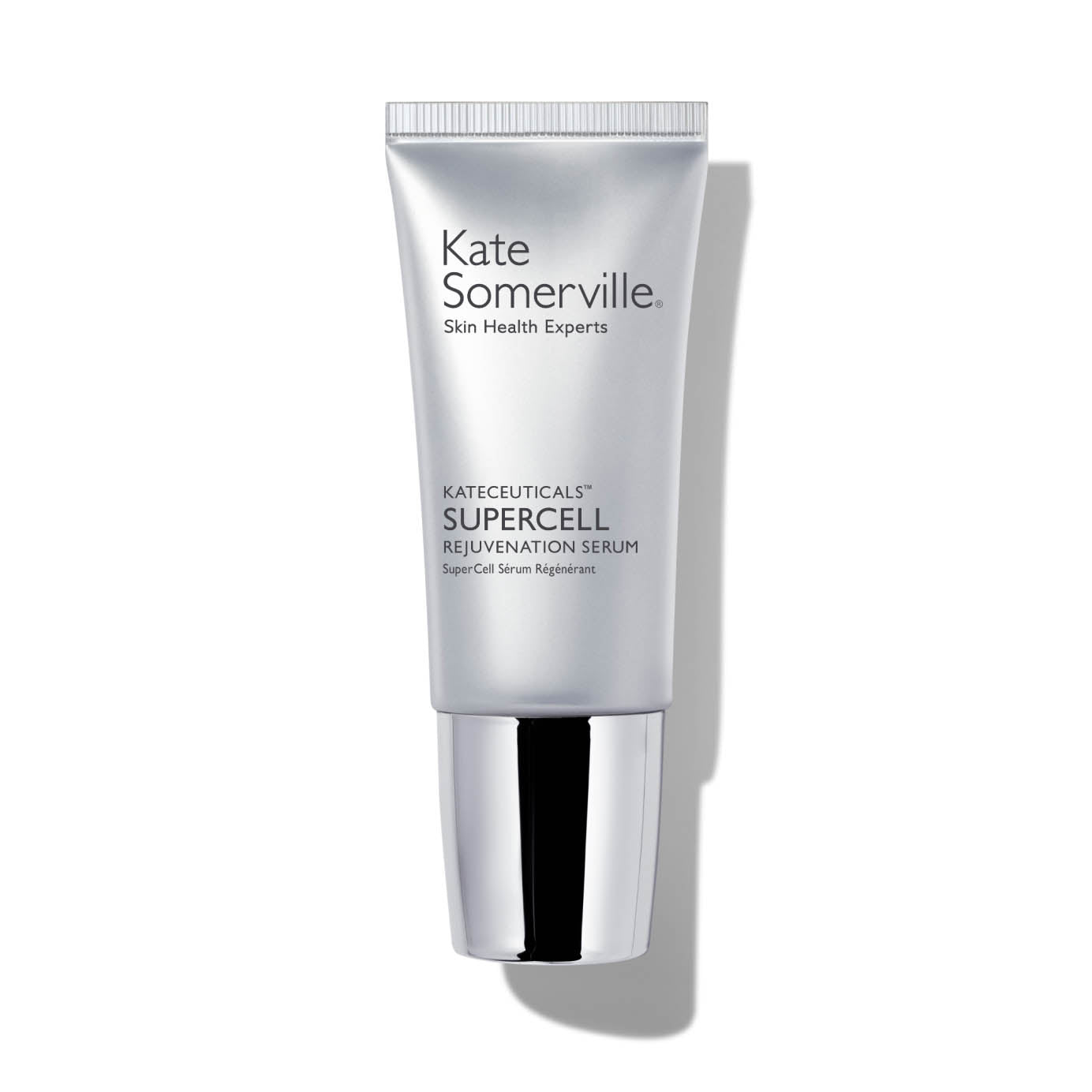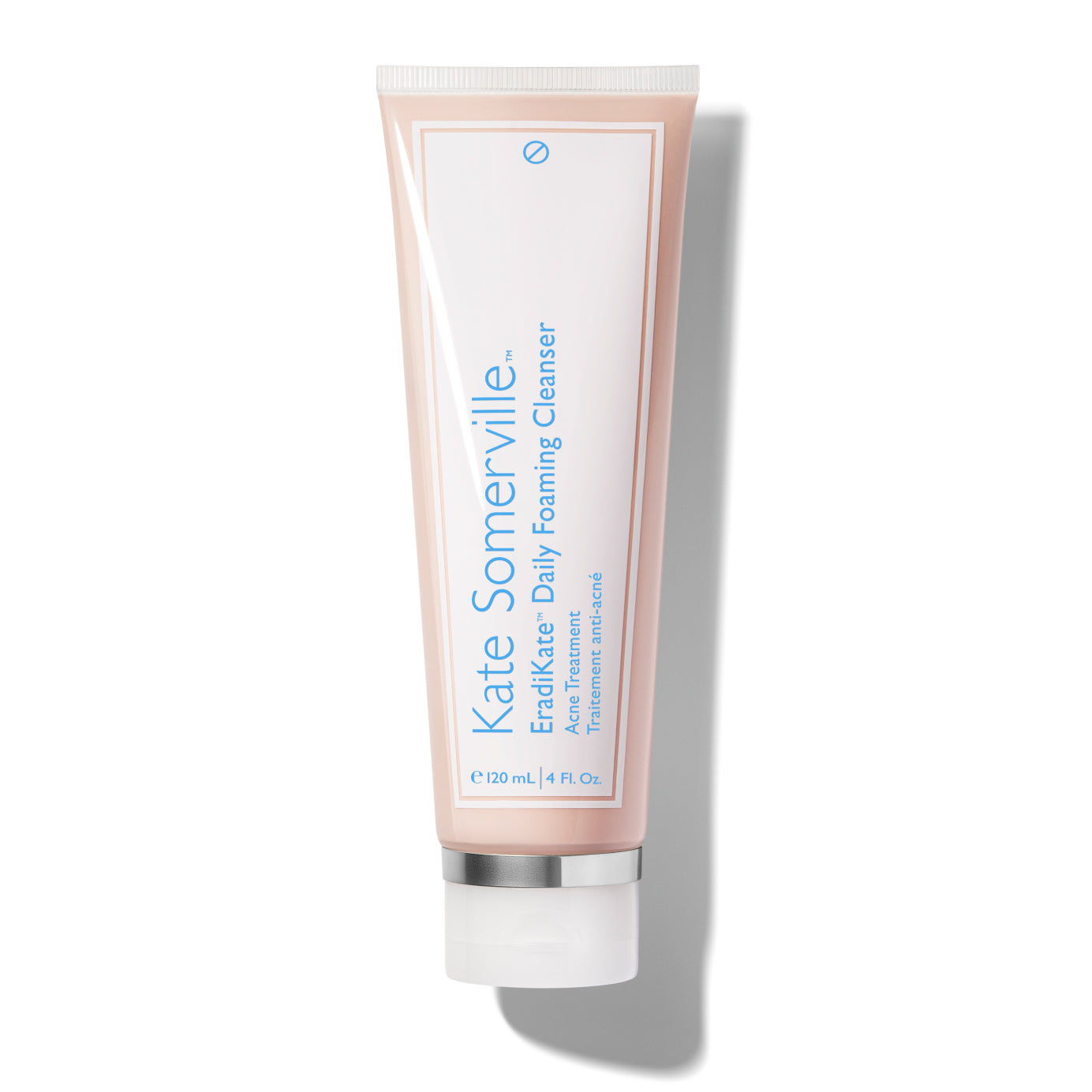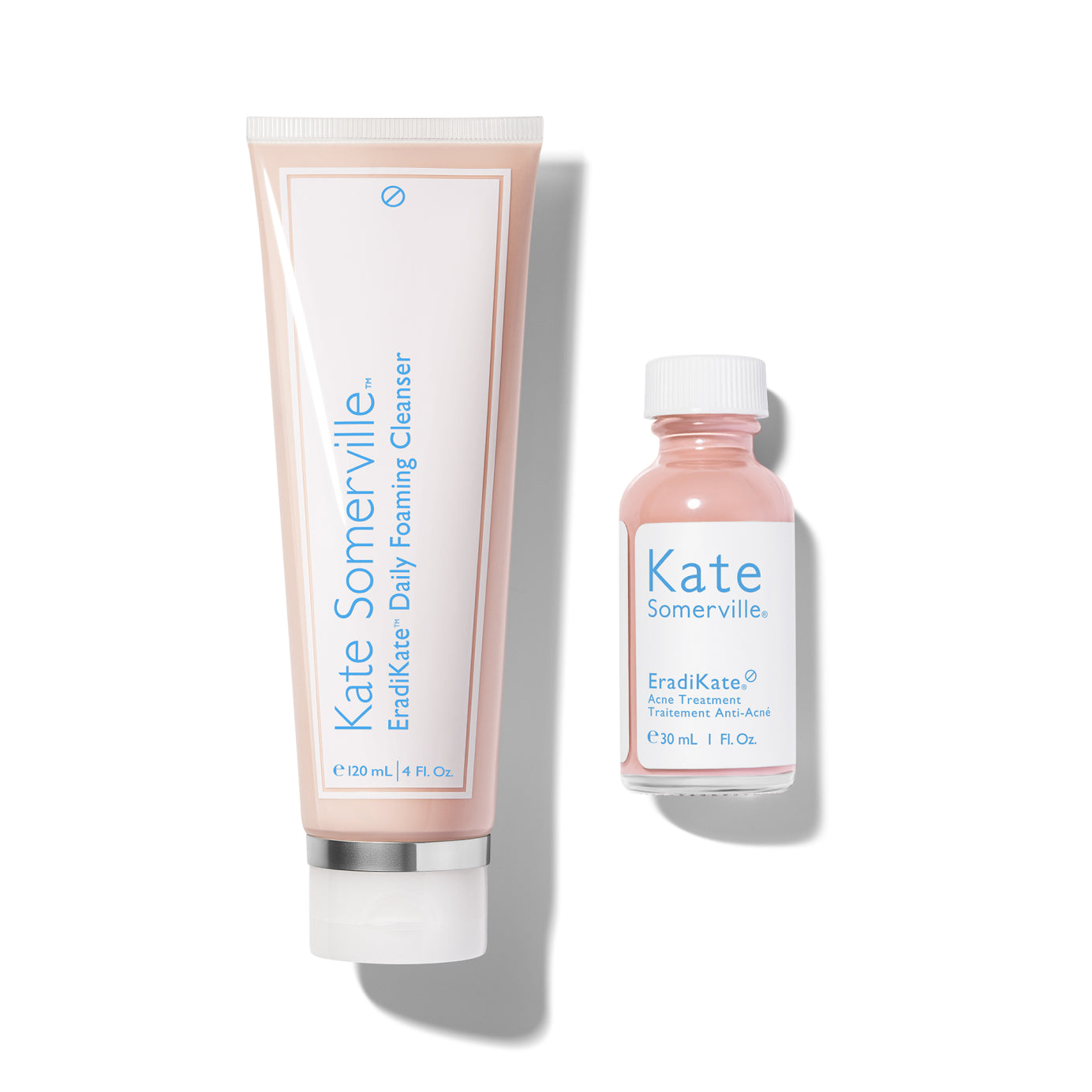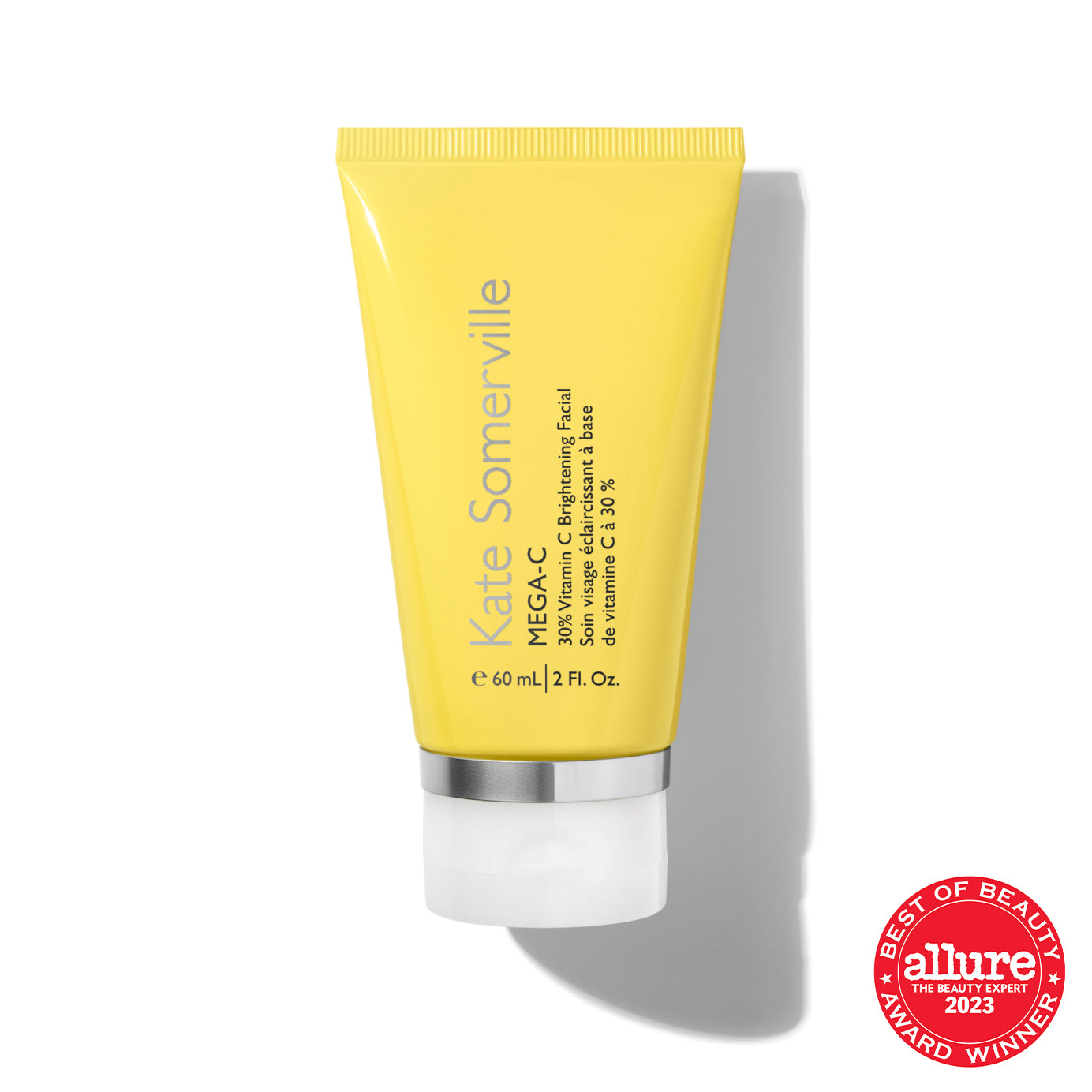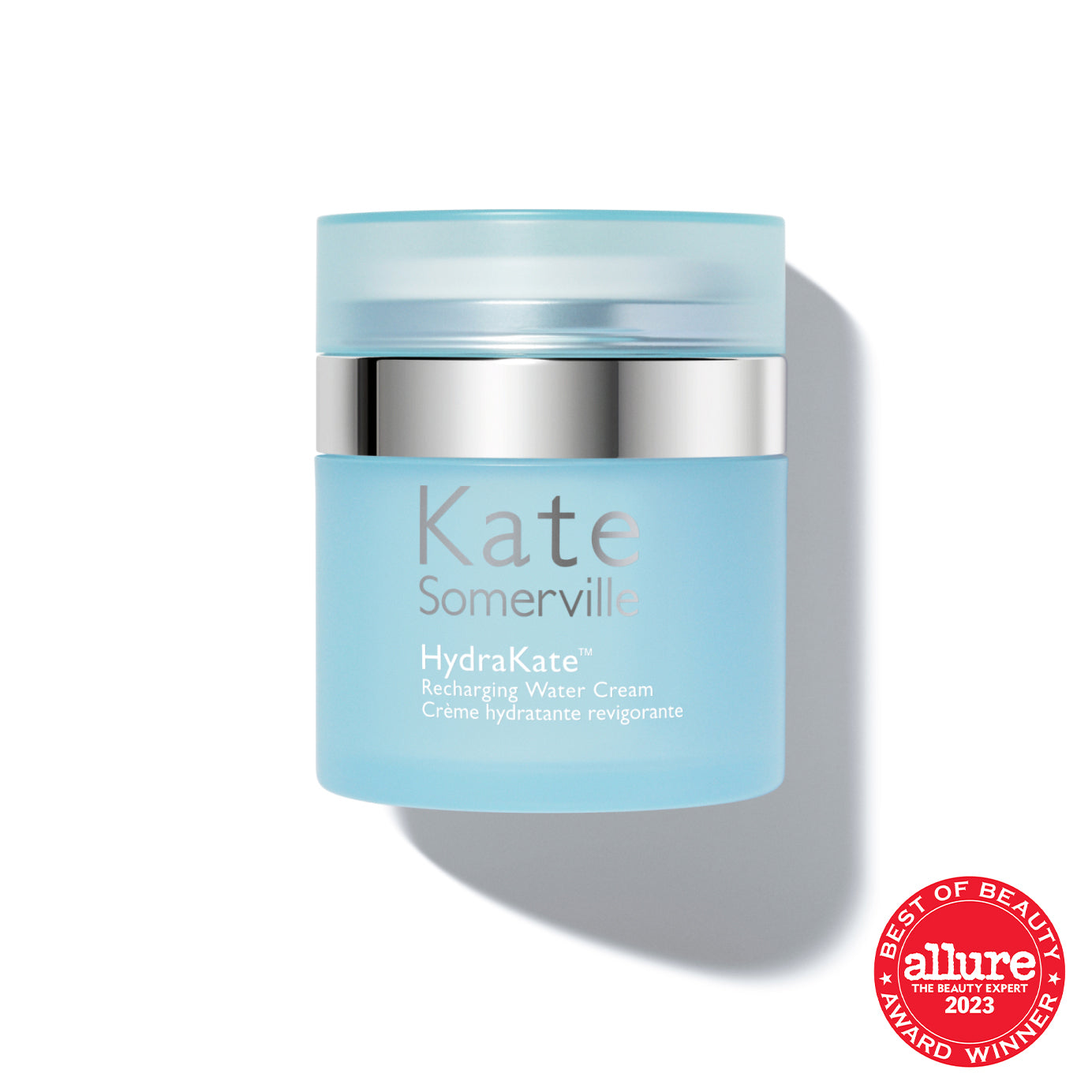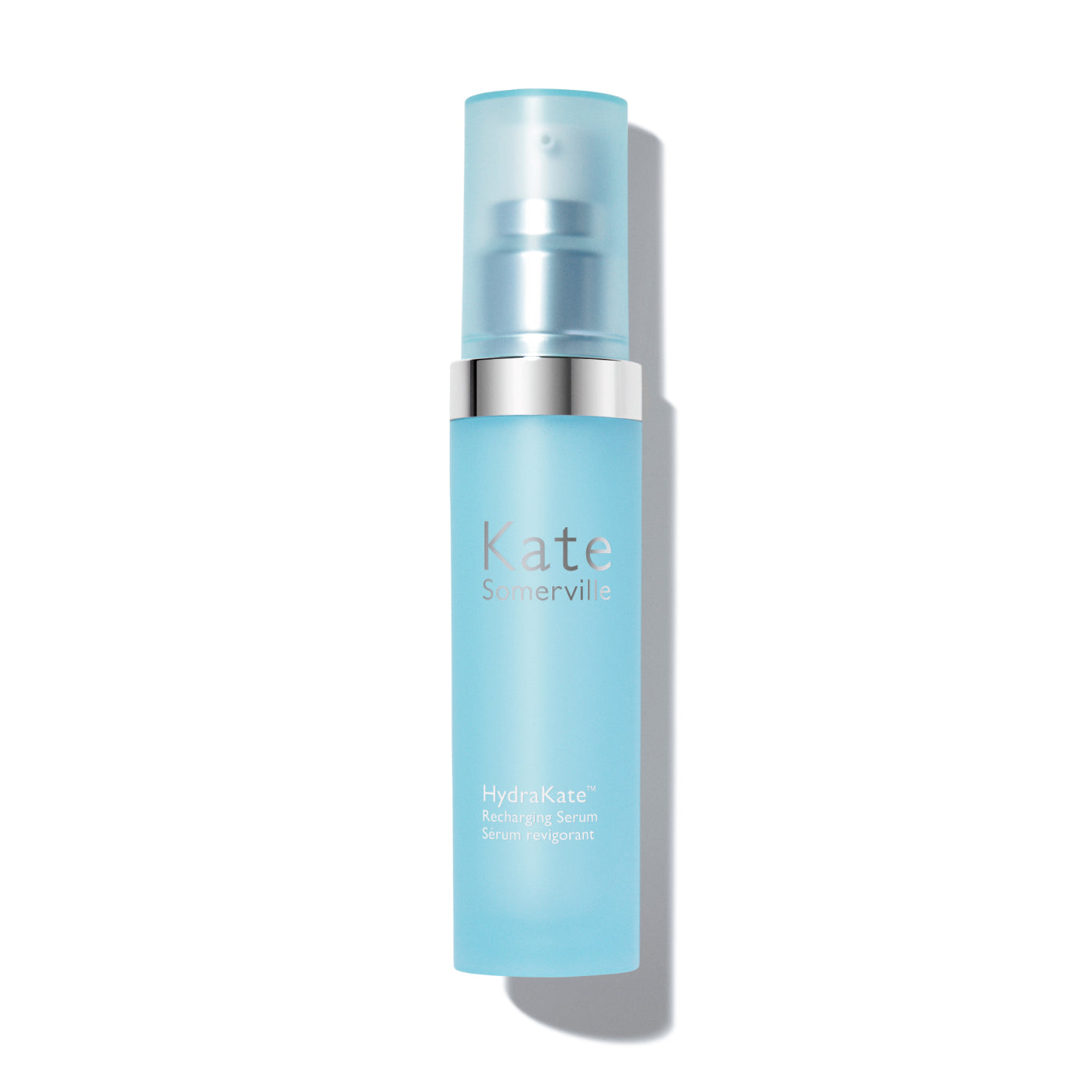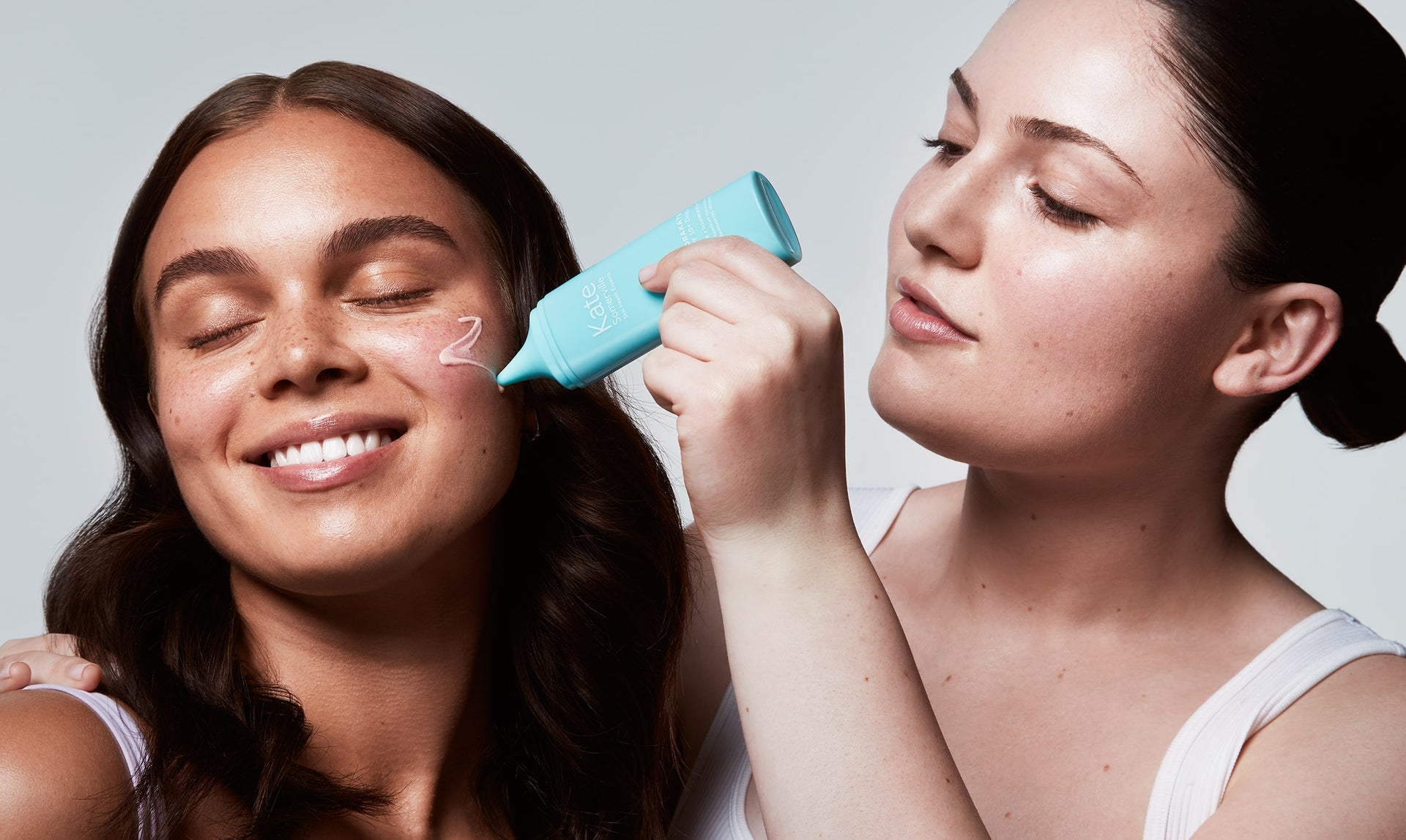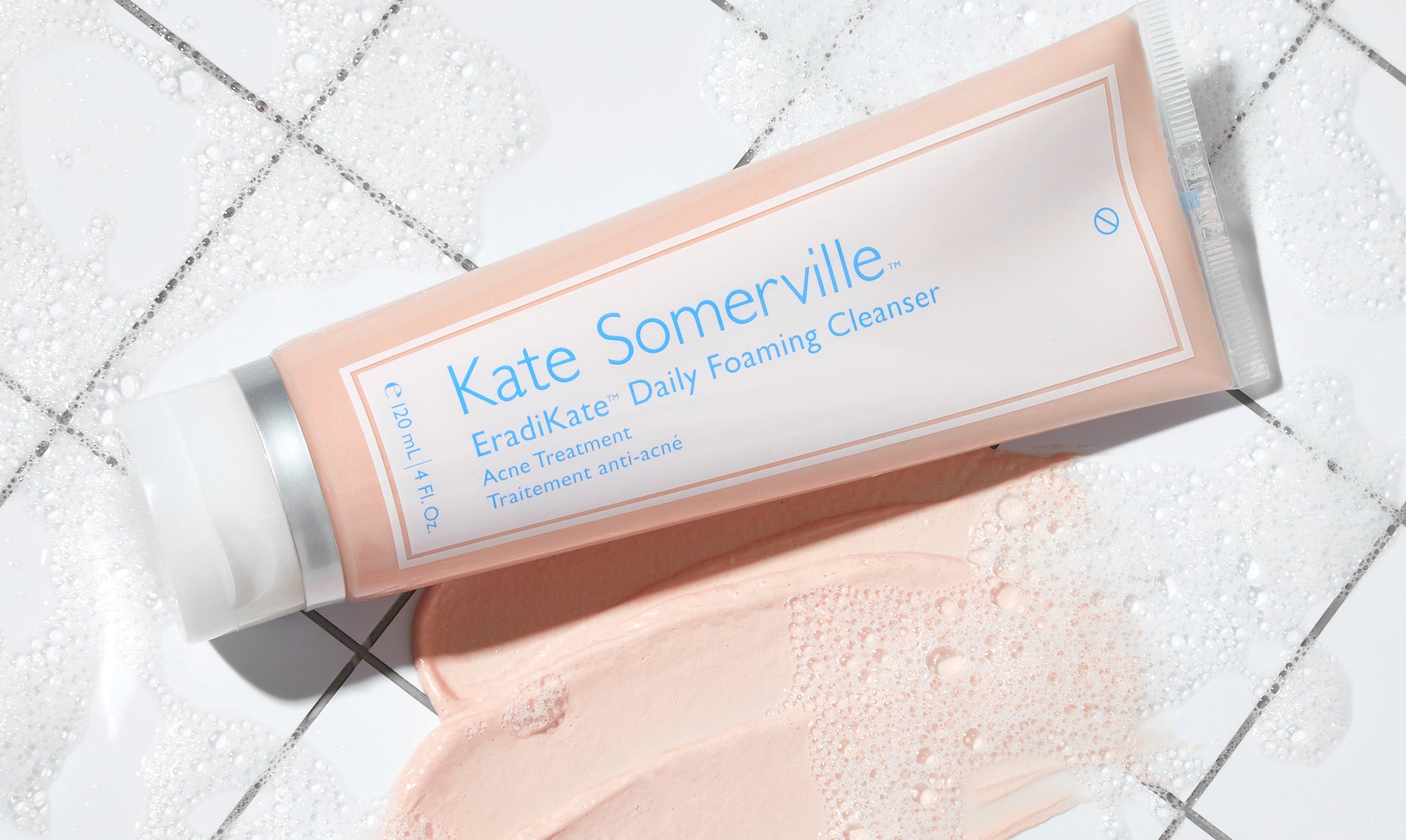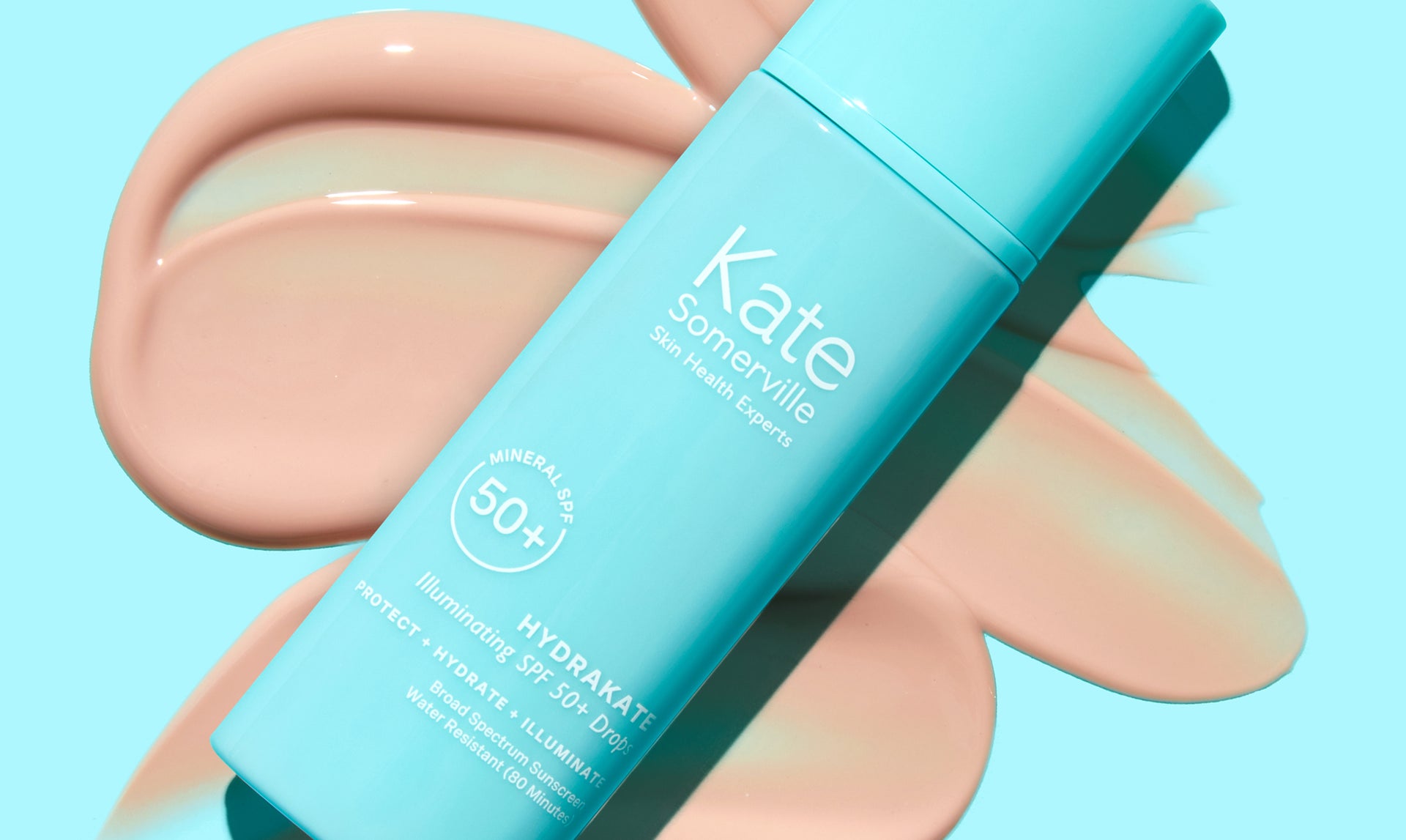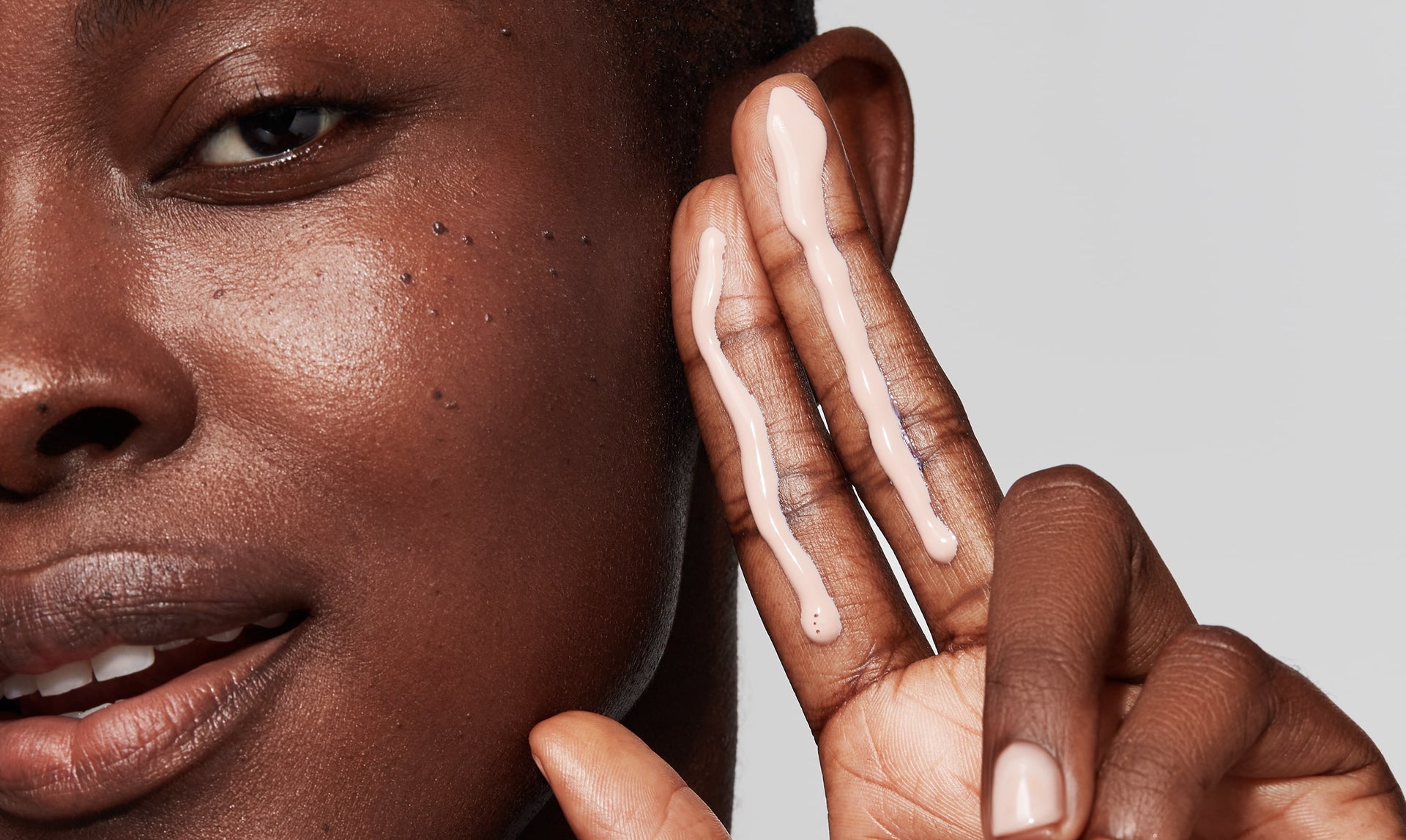If you struggle with acne, it can be challenging to find the right products to use on your face that are effective in helping you reduce breakouts and maintain clear skin. As Skin Health Experts who treat acne every day in our Los Angeles and New York skincare clinics, we know just how frustrating it feels to wake up to a breakout or struggle with chronic breakouts. Having said that, we also believe we can find effective solutions and are on a mission to help you discover what’s possible for your skin in the hands of an expert.
Nothing’s worse than trying a new acne product that claims to make a significant difference, only to feel disappointed in the results (or lack thereof). One of the most important products you will need if you are struggling with acne is a cleanser expertly formulated to treat oily or acne-prone skin.
You may be wondering, “What do cleansers do?” To help you make the best choice possible for you and your skin, we have put together a guide that details what acne cleansers are, common causes of acne, why acne cleansers are important to use, the best ingredients to look for in acne cleansers, and the best cleanser for acne. Below is everything you need to know to find the best facial cleanser for acne to start improving the appearance of your skin today.
Washing your face may seem like a relatively simple task. All you need is soap, water, and a towel to pat your face dry. However, if you are struggling with acne, the face wash you are using on your face can make a significant difference in the number of acne breakouts you experience and the overall health and appearance of your skin. Acneprone skin requires that you invest additional time and effort to help reduce acne breakouts and combat the common causes of acne.
An acne cleanser is a type of facial wash that is specially designed for acne-prone skin to help prevent breakouts. An acne cleanser is different than a typical face wash or bar of soap, primarily due to the unique bacteria-fighting ingredients that it contains. By choosing the right face cleanser for your skin, you can get rid of the bacteria that’s clogging hair follicles and causing breakouts. With this understanding of what a facial cleanser is, we can now cover what acne is and common causes.
An Introduction to Acne
Acne is a widespread condition that affects most individuals at some point during their life. Acne can range from mild acne (a few, occasional pimples) to moderate acne (inflammatory papules) to severe acne (nodules or cysts). The best way to treat acne depends on the type and severity of the acne. Acne forms as a result of greasy secretions from the skin’s sebaceous glands (oil glands) that clog the tiny openings of the surface of the skin in the hair follicles, known as pores. If the openings on the surface of the skin are large, the clogged pores take the form of a blackhead, which often appears as a small, flat spot with a dark center. If the openings on the surface of the skin are small, the clogged pores will take on the forms of a white head, which often appears as a small, flesh-colored bump. In both whiteheads and blackheads, the clogged pore can develop into a swollen, tender inflammation, a pimple, or a deeper lump or nodule. In severe cases of acne, such as cystic acne, the nodules are firm swellings that are located below the surface of the skin that is inflamed, tender, and in some cases, infected.
It’s often assumed that acne primarily occurs in adolescents. However, statistics show that adult acne is actually more common, with 45% of acne sufferers being in their 20s, 26% in their 30s, and 12% in their 40s1. And yes, while acne often begins during puberty, typically between ages ten through thirteen, and lasts for five to ten years, many people experience their first onset in their 20s.
Acne affects both males and females, though women are more likely to experience mild to moderate forms of acne into their thirties and beyond Pimples and blemishes often affect the face, but it can also occur on the back, shoulders, chest, neck and upper arms. With this basic understanding of acne in mind, it is now possible to explore some of the most common causes of acne.
Common Causes of Acne
Acne stems from heredity factors and hormones. Hormones are one of the primary culprits behind breakouts. During puberty, both males and females experience an influx of androgens, the male sex hormones that include testosterone. When the body produces more testosterone, a signal is distributed for the body to produce more sebum, which is the oil that is produced in the skin’s oil glands.
In addition to hormones, another common cause of acne breakouts is bacteria. When excess sebum clogs the openings of the hair follicles, bacteria begins to grow in the clogged pores, which is how pimples start to form. For women, some types of birth control pills can trigger acne, while others can suppress it, depending on the hormones used in the oral contraceptive and a woman’s unique biological state. With this understanding of the common causes of acne in mind, it is vital to understand the importance of using an acne cleanser to reduce breakouts.
The Importance of Using An Acne Cleanser
If you are suffering from acne breakouts, it is vital to use an acne cleanser as part of your skincare routine. By using an acne cleanser on your skin, you can help to reduce the number of acne breakouts you experience and improve the health and appearance of your skin.
Below is a handful of the top reasons why utilizing an acne cleanser is important for acne-prone skin.
Remove Build-Up
One of the most important reasons to use an acne cleanser is to remove build-up from the surface of the skin. An acne cleanser will help remove dirt, oil, and unwanted debris from the surface of the skin. During the day, the skin of the face becomes covered in sweat, oil, dirt, bacteria, viruses, pollutants, and dead skin cells. When these items build up on the surface of the skin, they clog pores, which can lead to acne breakouts and prevent acne treatments from penetrating into the skin properly. By using a daily acne cleanser, you can remove these impurities from the surface of your skin while keeping your skin fresh and clean. Beyond just cleansing the skin, an acne cleanser has acne-fighting ingredients that help clear and prevent breakouts. Look for a cleanser with salicylic acid or sulfur for best results.
Boost Hydration
Using an acne cleanser regularly can also help your skin maintain the right level of hydration by managing the PH levels of the skin. This will prevent the skin from becoming too oily or dry. While it may seem counterintuitive if you suffer from oily-prone skin, depriving your skin of essential hydration will only encourage your skin to produce more oils. Hydration helps provide that necessary balance.
Maintain Clear Skin
If you suffer from acne breakouts, maintaining clear skin is of the utmost importance. As mentioned above, tiny glands under the skin produce sebum and use the hair follicles within the skin as a pathway to allow the oil to reach the surface. However, if excessive dirt and dead skin cells build-up on the surface of the skin, the follicles become blocked and clogged, further trapping oil, sweat, and dead skin cells in the pores. This results in inflammation and acne breakouts. By using an acne cleanser regularly, you can prevent this type of build-up and allow sebum to reach the surface of the skin without becoming trapped, which reduces the likelihood of an acne breakout. Again, using an acne cleanser with the right ingredients will help you maintain clear skin.
Ingredients to Look For in Acne Cleansers
When looking for the ideal acne cleanser for your skin, it’s important to look for ingredients that have been shown to be effective in treating and preventing acne breakouts. Our Skin Health Experts have put together the list of ingredients below that are beneficial to look for in an acne cleanser due to how they support the acne-fighting process.
Hyaluronic Acid
Hyaluronic acid is a humectant that the human body naturally produces. In the body, hyaluronic acid allows the body to retain water that keeps tissues well-lubricated and moisturized. Areas of the body that contain high concentrations of hyaluronic acid include the skin, the eyes, and the connective tissue. While in the body, Hyaluronic acid binds to water to help retain moisture and hydrate tissue cells. For the skin, hyaluronic acid can help keep the skin looking hydrated and healthy, which can counteract some of the harsher ingredients in acne cleansers that dry out the skin. By keeping the skin hydrated without thick emollients, Hyaluronic acid helps bring skin back into balance.
Sulfur
If you’ve been treating your acne-prone skin for a while, chances are high that you’re familiar with this naturally occurring, pink acne-fighting ingredient. Sulfur-based acne treatments are a popular choice due to their ability to help remove the top layer of skin naturally, which helps peel away blockages. Sulfur is typically recommended for oily skin types as it can help clear their pores. Check out the hyperlink if you want to dive deeper into how sulfur fights pimples!
Salicylic Acid
Salicylic acid is another beneficial ingredient for helping reduce acne outbreaks because of its qualities as a natural exfoliant. Salicylic acid is often used in treating mild to moderate acne. This beta-hydroxy acid belongs to the salicylates class of drugs. When salicylic acid is applied to the skin, it helps to promote the shedding of dead skin cells from the top layer, which helps to exfoliate. Salicylic acid is also effective at removing dirt and bacteria from the surface to purify the pores. This ingredient is particularly effective for acne-prone skin because of its ability to increase circulation in oily and clogged pores by removing oils, bacteria, and dead skin cells. Salicylic acid also has astringent properties that help to reduce the oiliness of the skin and tighten it through exfoliation, which prevents acne breakouts from occurring.
Peppermint Oil
Peppermint Oil is derived from the peppermint plant, which is a cross between spearmint and watermint. Peppermint oil is a beneficial ingredient for cleansers because of its calming properties.
Finding the Right Acne Cleanser
If you have oily or acne-prone skin, you’ll want to find a high-quality acne cleanser that will work in conjunction with any acne treatment system you already have at home. In addition, it’s important to be mindful of your skin type when selecting an acne cleanser so you don’t inadvertently worsen your acne symptoms. When using an acne cleanser on your skin, it is recommended to use the cleanser once per day as well as a gentle cleanser. Using an acne cleanser more frequently than once a day can strip healthy oils from the surface of the skin and cause irritation.
Kate Somerville offers a variety of different acne treatment options to explore if you are looking for high-quality products with acne-fighting ingredients. Kate Somerville’s EradiKate® Daily Foaming Cleanser is a medicated, foaming acne cleanser that contains 3% sulfur to help reduce and prevent blemishes, unclog pores, balance oily skin, and minimize the appearance of pores. If you’ve been struggling with acne for a while and are looking for an effective cleanser that won’t further irritate the skin, our EradiKate™ Clarifying Acne Gel Cleanser has 1% salicylic acid to help clear blemishes and end the persistent acne cycle alongside a prebiotic complex that helps balance and restore skin’s protective microbiome barrier to minimize dry, stripped, damaged skin and assist in longer-lasting skin clarity.
